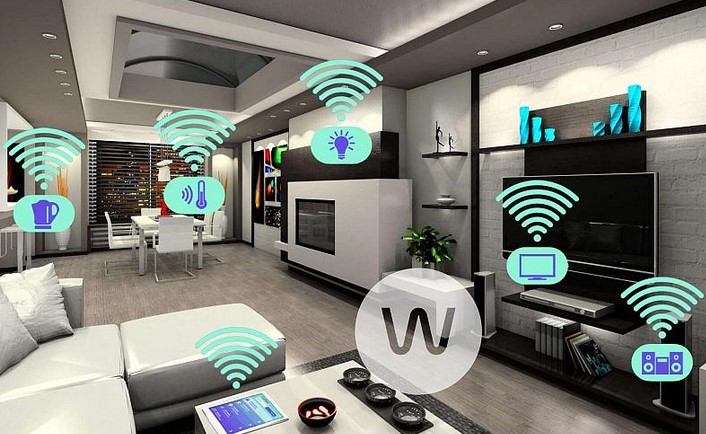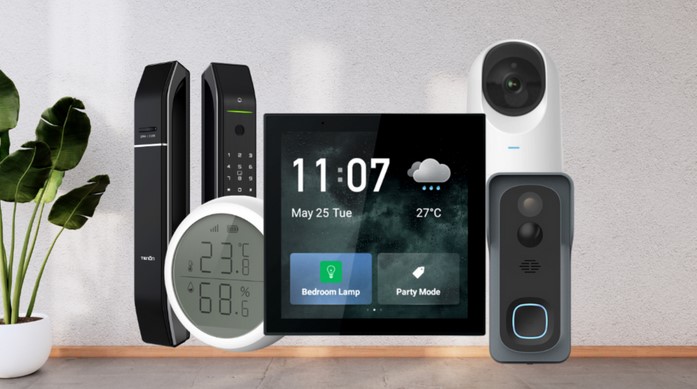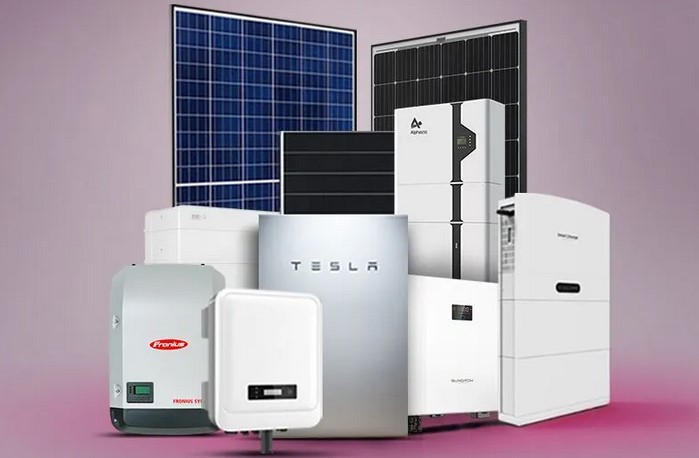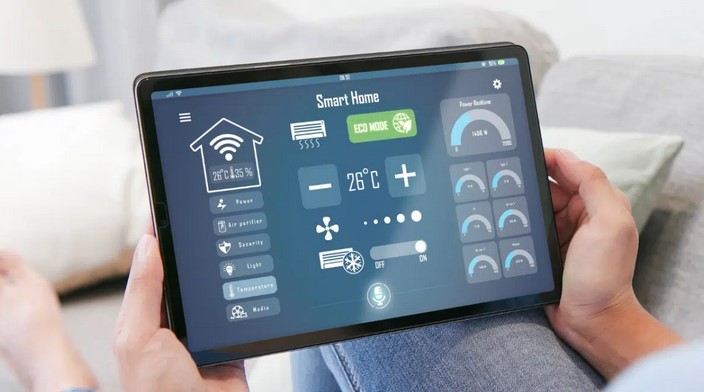
Source:https://cdn.homecrux.com
As technology continues to evolve, homeowners are increasingly looking for ways to make their living spaces more efficient, convenient, and secure. One of the most popular trends in home improvement today is DIY home automation setups. These setups allow you to control your home’s lighting, security, temperature, and appliances with just a few taps on your smartphone or through voice commands. The best part? You don’t have to be an expert to get started. With the right tools, knowledge, and a bit of creativity, you can design a smarter, more connected home that suits your lifestyle and needs. In this article, we’ll explore how you can create your own DIY home automation setup, enhancing both convenience and functionality.
1. Understanding the Basics of DIY Home Automation Setups
Before diving into the specifics of setting up your own smart home, it’s important to understand what home automation is and how it works. Home automation refers to the integration of devices and systems within your home that can be controlled remotely or programmed to operate automatically. These systems often include lighting, HVAC (heating, ventilation, and air conditioning), security cameras, smart locks, and home entertainment systems.
With DIY home automation setups, you are in complete control. Rather than purchasing an expensive pre-configured smart home system, you can customize your setup to fit your preferences and budget. The key components of a DIY home automation setup typically include smart devices, a central hub, and a control app or platform.
1.1. Smart Devices
The foundation of any home automation system is the smart device. These devices are designed to connect to the internet and communicate with other smart products in your home. Common smart devices include:
- Smart bulbs: These allow you to control the brightness and color of your lights remotely.
- Smart thermostats: Devices like the Nest Thermostat enable you to control your home’s temperature from your phone, saving energy and improving comfort.
- Smart plugs: You can plug almost anything into a smart plug to control its on/off function remotely.
- Smart cameras and doorbells: These devices allow you to monitor your property remotely, receive motion alerts, and even speak to visitors through an app.
1.2. Central Hub or Platform
For a DIY home automation setup, you’ll need a way to connect all your devices. A central hub or platform is essential for ensuring that different devices from different brands can communicate with each other. Popular platforms include:
- Amazon Alexa
- Google Assistant
- Apple HomeKit
- SmartThings
These platforms act as a bridge, allowing you to control various devices, set schedules, and automate tasks all in one app. Some of these platforms also support voice commands, making it easy to control your devices with just your voice.
1.3. Control App
Most home automation setups come with a control app that allows you to manage all your connected devices. These apps can typically be downloaded to your smartphone or tablet, and they often allow for remote control, scheduling, and monitoring of devices from anywhere. Some apps even let you create “scenes” or “routines,” which trigger multiple actions with a single command (e.g., turning off all lights, locking doors, and adjusting the thermostat).
2. Essential Steps for Setting Up DIY Home Automation
Now that we have a basic understanding of DIY home automation setups, let’s go through the essential steps to get your smart home up and running. The process can be broken down into three major steps: selecting devices, setting up a control hub, and configuring automation.
2.1. Step 1: Selecting Your Smart Devices
Choosing the right smart devices is crucial to the success of your home automation system. Start by identifying which areas of your home you want to automate. Here are some categories to consider:
- Lighting: Smart light bulbs or smart light switches can help you control the lighting in your home from anywhere. You can even set them to turn on or off at specific times or in response to motion.
- Security: Install smart cameras, doorbells, and motion detectors to keep an eye on your property. These devices can send you alerts if motion is detected or if someone is at your door.
- Climate Control: A smart thermostat can help you maintain a comfortable temperature while saving energy. Some models even learn your preferences over time and adjust the temperature automatically.
- Home Appliances: Smart plugs and smart appliances allow you to control devices like coffee makers, fans, or washing machines remotely.
When selecting your devices, consider compatibility with your central hub or platform. Ensure that all your devices are compatible with the platform you plan to use, whether it’s Amazon Alexa, Google Assistant, or another hub.
2.2. Step 2: Setting Up Your Central Hub
Once you’ve selected your devices, it’s time to set up your central hub or platform. If you already have a smart speaker, like an Amazon Echo or Google Home, you likely have a hub already. These devices can connect to and control a variety of smart products.
Follow the manufacturer’s instructions to link your smart devices to the central hub. In most cases, you will need to download the corresponding app (e.g., the Alexa app for Amazon devices or the Google Home app for Google devices) and follow the prompts to add each device to your network.
For more advanced users, you can opt for a more customizable hub, such as SmartThings, which supports a wider variety of devices and allows for more granular control over your system. This platform can be particularly useful for those who want to integrate products from multiple brands.
2.3. Step 3: Configuring Automation
One of the most exciting aspects of DIY home automation setups is the ability to configure your system to automate everyday tasks. Here are some popular automation scenarios you can set up:
- Schedule Lighting: Set your lights to turn on automatically when the sun sets or when you arrive home.
- Climate Control: Program your thermostat to adjust based on the time of day, or set it to a comfortable temperature right before you get home.
- Security Monitoring: Create automated routines to turn on security lights, lock doors, and activate cameras at specific times.
- Energy Efficiency: Set smart plugs to turn off power to appliances when not in use to save energy.
Most platforms allow you to create “scenes” or “routines” that trigger a series of actions with one command. For example, you could create a “Good Night” routine that turns off all the lights, locks the doors, and lowers the thermostat with a single tap on your phone or a voice command.
3. Best Practices for a Seamless DIY Home Automation Setup
While DIY home automation setups can be a fun and rewarding project, there are a few best practices to ensure everything runs smoothly and efficiently:
3.1. Ensure Network Stability
A reliable Wi-Fi network is essential for a smooth DIY home automation setup. Smart devices require a stable internet connection to function properly. Make sure your router can handle multiple devices and is placed in a central location for the best coverage. If needed, consider investing in a Wi-Fi extender to improve coverage in larger homes.
3.2. Keep Security in Mind
When setting up DIY home automation, security is crucial. Ensure that your devices are password-protected and regularly updated with the latest software patches. Avoid using weak passwords, and consider enabling two-factor authentication for added protection.
3.3. Plan for Future Expansion
One of the advantages of DIY home automation is that it is easily expandable. As your needs grow, you can add new devices and integrate them into your existing setup. When planning your automation system, keep in mind the possibility of future upgrades, such as adding voice assistants or new smart appliances.
A well-thought-out DIY home automation setup can transform your living space into a smarter, more convenient, and efficient home. By carefully selecting devices, setting up a central hub, and configuring automation, you can streamline your daily routines and enhance the overall functionality of your home. From controlling lights and thermostats to enhancing security, the possibilities are endless. Whether you’re a tech enthusiast or simply looking to make your life easier, DIY home automation offers the perfect balance of customization and control. With a little time and effort, you can create a home that not only meets your needs but also reflects your personal style and preferences.



